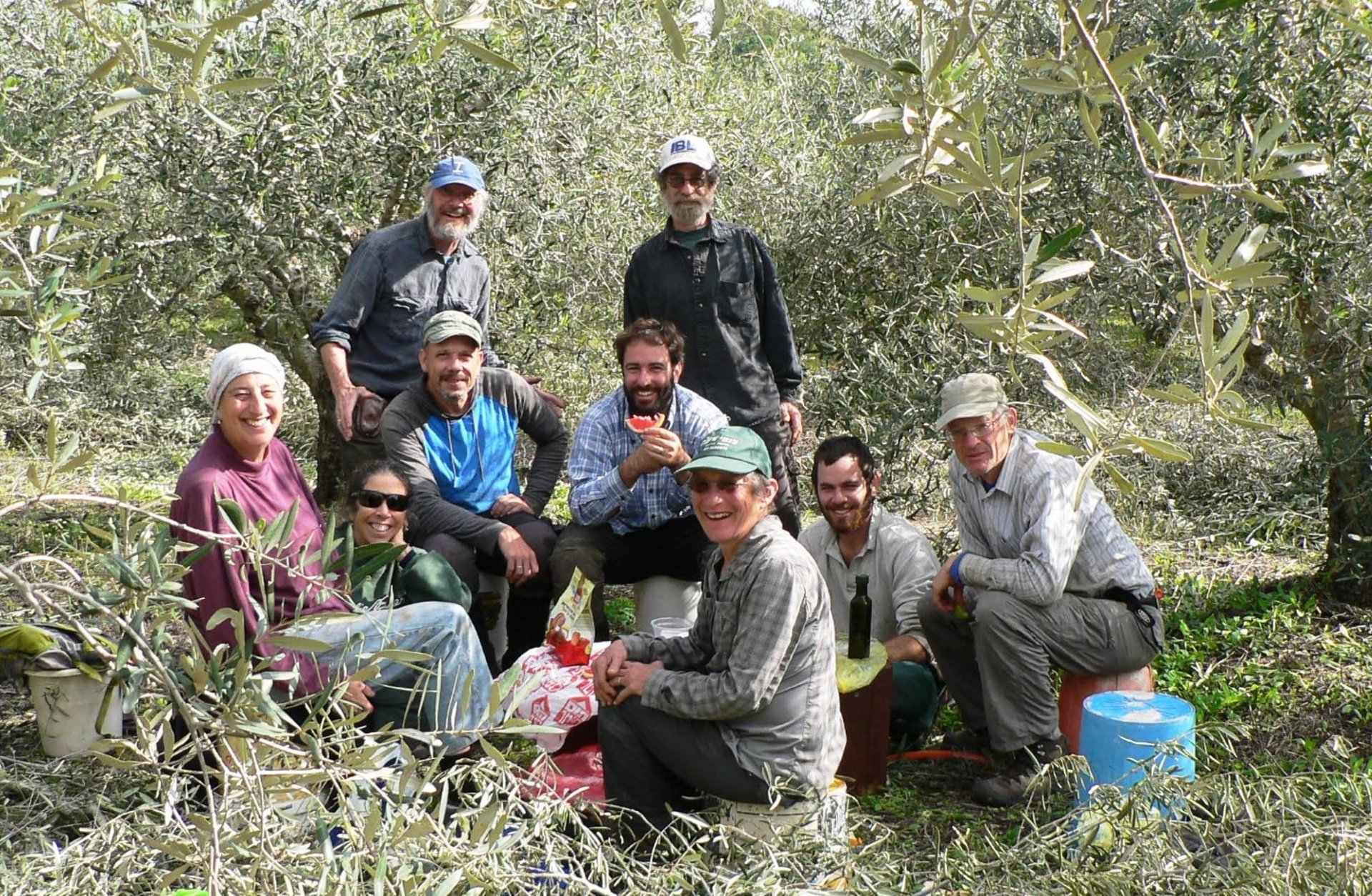
About the Gezer Olive Community
15
Volunteer Support
Organic Practices
Kibbutz Gezer Olives
At Kibbutz Gezer olives, we grow olives organically and sustainably, without chemical ferrtilizers, pesticides or herbicides. We do our best to improve the soil, provide a place for local fauna and flora to thrive. Our donkeys, Malka and Rachel, roam freely and fertilize our soil while keeping the weeds down. We have four main types of olive trees: Suri, Nabali, Barnea, and Shimlali, local varieties each with its own special characteristics and taste. The olives are cold pressed at a local olive press and bottled here on the kibbutz.
The farmwork is done by kibbutz folk, both members and their offspring, as well as friends and volunteers who come for the experience. This is not by chance. In spite of all the changes in kibbutz society , we still maintain some of the ideals that were the mainstay of kibbutz ideology. We believe in the importance of self-labor and maintaining our connection with the land. Just as important, we want to avoid the exploitation of others, especially those workers who have limited rights and little power to claim what is due to them.
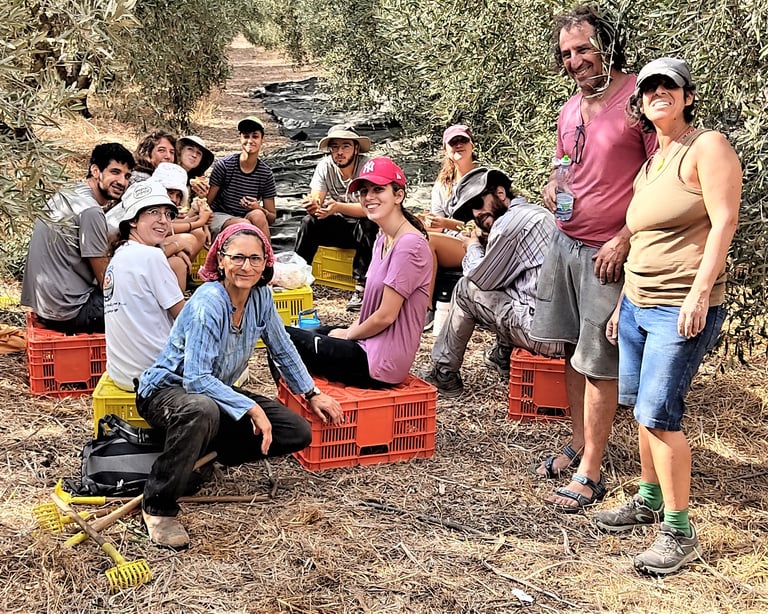

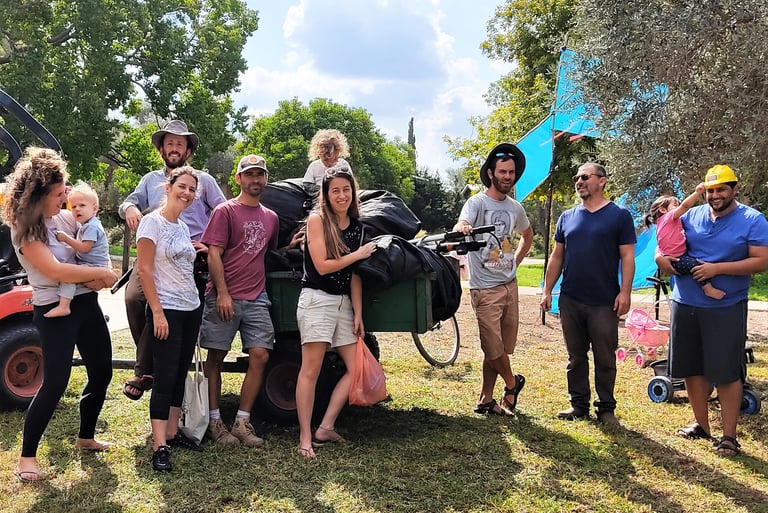

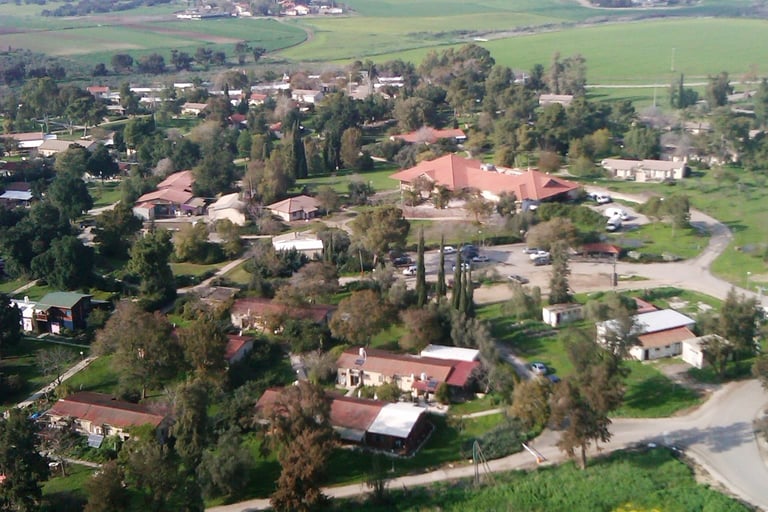

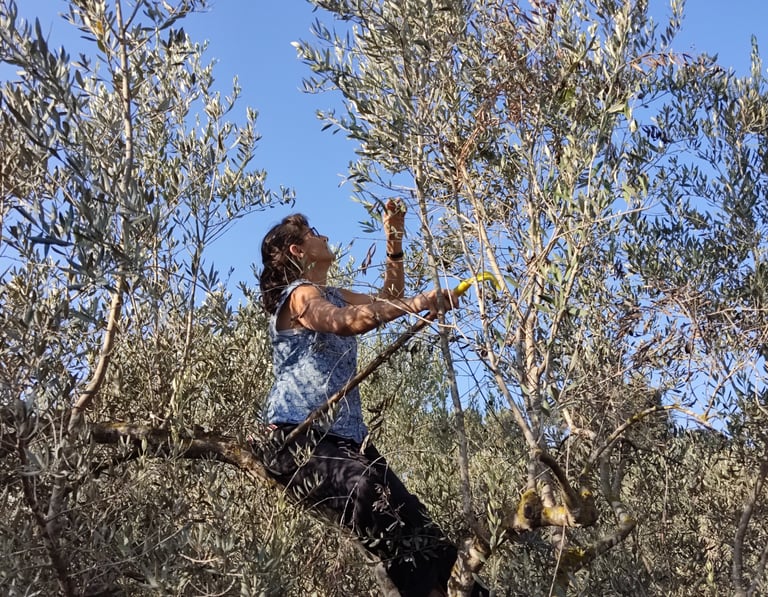

Kibbutz Gezer
Our 10 acres (40 dunam) of olives are part of Kibbutz Gezer. Kibbutz Gezer is situated between Tel Aviv and Jerusalem. Originally founded in 1945, the kibbutz dissolved and was re-established by North Americans in 1974. The majority of the older population immigrated from North America.
We share ownership of some things, make community decisions together, but at the same time each person has their own private home, job, kids, etc. We have farmland where we grow field crops like wheat and corn, 250 milking cows, 100 acres of newly planted avocado trees , a community garden, and food forest. There's a grocery store, children's houses where kids spend the day until they reach school age, a library and second hand shop.
Kibbutz Gezer has a reform synagogue, and services are held every Friday evening as well as on Jewish holidays. The pub, run by kibbutz members, is open on Thursday evenings.